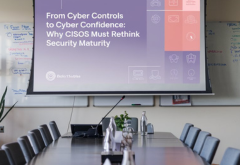Author – Kalpana Singhal
As the cybersecurity landscape continues to evolve, resellers, VARs, and IT consultants must be prepared to guide their clients through a complex environment. From quantum threats to the mainstream rise of deepfake attacks, 2025 will be a year of both challenges and opportunities for businesses—and the channel is uniquely positioned to provide the expertise and technology solutions needed to navigate these developments.
1. The Rise of Unified Data Security Platforms
In 2025, organisations will increasingly consolidate their cybersecurity tools into a single, unified data security platform. This approach will address the rising complexity of managing multiple tools while also mitigating the ongoing cybersecurity skills shortage. VARs should prepare to support clients with solutions that offer end-to-end visibility and control across their entire cybersecurity stack, from cloud workloads to networks and SOCs.
The shift to unified platforms is a critical trend that VARs can capitalize on, helping businesses streamline operations, enhance efficiency, and reduce operational overhead. A consolidated security platform provides not just security but also a more resilient and adaptive defence against evolving cyber threats.
2. Deepfakes in APAC: An Emerging Threat for Corporate Security
For the channel, one of the biggest cybersecurity challenges in 2025 will be addressing the rise of deepfake attacks, particularly in the APAC region. Deepfakes, used to impersonate executives or employees, have already led to significant financial losses, as seen in recent attacks against corporations in Hong Kong. As generative AI technology improves, deepfakes are expected to become a more common tool in cybercriminal arsenals, making them a serious threat for businesses across industries.
IT solution providers and VARs need to help clients defend against deepfake threats by offering AI-driven security tools that can identify fraudulent content—whether video, voice, or both—and alert businesses before significant damage occurs. As the technology evolves, VARs must stay ahead of these threats by working with vendors that provide advanced detection and mitigation capabilities.
3. Quantum Computing and the Future of Encryption
While quantum computing still faces several technical hurdles before it can break modern encryption methods, the threat of “harvest now, decrypt later” tactics is a growing concern for businesses and governments alike. In 2025, it is expected that nation-state actors will intensify efforts to collect highly classified data, preparing to decrypt it when quantum computing advances sufficiently.
For VARs, this presents an opportunity to advise clients on the adoption of quantum-resistant technologies. Solutions such as quantum-resistant tunnelling, post-quantum cryptography, and quantum key distribution (QKD) will be essential for businesses looking to secure their communications in the future. Helping clients transition to these technologies will be a key focus for channel partners in the coming years.
4. AI Ethics and Transparency: A Growing Focus for APAC Regulators
As AI adoption accelerates across APAC, the regulatory landscape will continue to evolve. Governments are focusing on AI ethics, data protection, and transparency, which will impact how businesses deploy AI solutions. In 2025, organisations will need to ensure that their AI models comply with regulations on data security and model transparency.
For VARs, this creates an opportunity to work with clients to implement AI-driven solutions that not only comply with new regulations but also build trust with customers. Proactive communication regarding AI model mechanics—such as how data is collected, stored, and used—will be essential for ensuring transparency and fostering customer confidence.
5. Supply Chain Security and Product Integrity: A Critical Focus
The complexity of modern supply chains, especially in cloud environments, will drive organisations to enhance their focus on product integrity and supply chain security in 2025. Real-time visibility and continuous performance monitoring will be vital for identifying potential risks and vulnerabilities.
For VARs, this represents an opportunity to provide clients with advanced monitoring and risk assessment tools that can help ensure the resilience and security of their supply chains. As organisations increasingly rely on cloud services and remote vendors, VARs will play a key role in helping businesses build secure, agile, and transparent supply chains.
 Latest Technology News Today – Get Latest Information Technology Updates and Services Latest Technology News Today – Get Latest Information Technology Updates and Services
Latest Technology News Today – Get Latest Information Technology Updates and Services Latest Technology News Today – Get Latest Information Technology Updates and Services 









